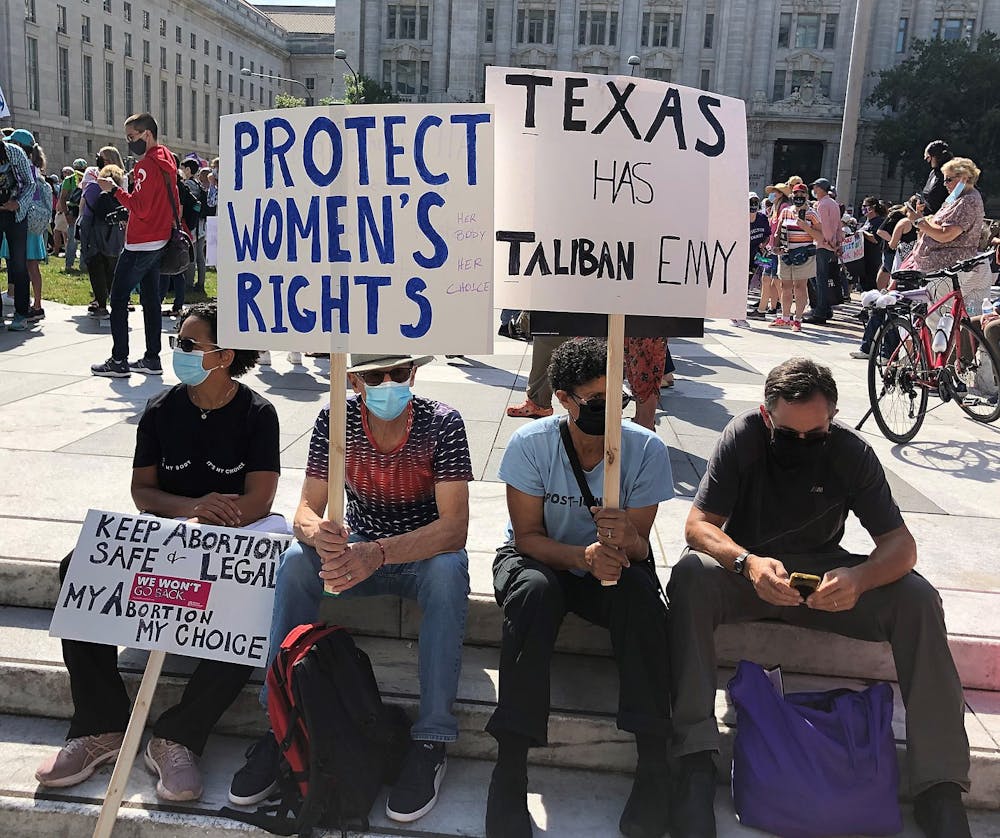By Ailya Khan
Staff Writer
Lubbock, Texas, a county close to the New Mexico border, has passed an ordinance banning people from assisting women to travel to get an abortion, despite abortion being legal within the county itself. This new “travel ban” serves as another attempt from conservatives to further restrict abortion access and female autonomy since the fall of Roe v. Wade.
Lubbock now joins three other Texas counties that have all passed similar anti-abortion ordinances, and is the largest of the four. The county has a population of about 317,000 residents, far outnumbering the other three, according to AP News.
The abortion travel ban is designed to be enforced through lawsuits filed by private citizens against people who “knowingly transport any individual for the purpose of providing or obtaining an elective abortion, regardless of where the elective abortion will occur,” according to the Texas Observer. However, the ordinance solely applies to people helping a pregnant person travel to receive an abortion; the pregnant person themselves would not face legal liability. Nevertheless, the ban intensifies obstacles for pregnant women seeking reproductive and abortion care.
The legal mechanism of private lawsuits was also used by Texas to enact a strict abortion law in 2021 before the U.S Supreme Court overturned Roe v. Wade, allowing the state to prohibit all abortions at about six weeks from the patient’s last menstrual period. Although the abortion patients themselves were not to be penalized, the state relied on the actions of private citizens, allowing anyone who performed or facilitated an abortion to be sued, according to The Texas Tribune.
Legal scholars explain that this ordinance was crafted to be enforced by private lawsuits and specifically prohibits police or county officers from enforcing it, as a way to avoid immediate court challenge as the nature of such an ordinance is unconstitutional, according to the Texas Observer.
The ordinance also violates constitutional law regarding interstate travel. Citizens of the United States are entitled to travel freely between states, a notion that has been upheld in many previous Supreme Court rulings, like Shapiro v. Thompson. Justice Brett Kavanaugh supported this perspective by sharing a short statement on his opinion of the constitutionality of the ban.
“May a state bar a resident of that state from traveling to another state to obtain an abortion? In my view, the answer is no, based on the constitutional right to interstate travel,” Kavanaugh said.
Texas already has one of the most restrictive abortion bans in the country, forcing many Texans to travel far out of state, and even at times out of the country, to access an abortion.
The ordinances were drafted by Mark Lee Dickson, an anti-abortion activist, and Jonathan F. Mitchell, the former solicitor general of Texas who is also known for creating the state's 2021 abortion ban, according to The New York Times. The Lubbock County Commissioners adopted the travel ordinance in a 3 to 0 vote. Dickson has been adamant about his hopes for an abortion free America, and he illustrated the importance this new ordinance holds in attaining that.
“These abortion trafficking ordinances really are the next stage in an abortion-free America,” says Dickson.
Although these ordinances do not entirely forbid a pregnant person from traveling to receive abortion care, as they serve more as formal declarations than a legally binding law, they certainly will cause harm to people in need of an abortion. The travel ban has received much criticism, being denounced as an unnecessary measure to expand control over reproductive freedom, which is already tightly restricted in Texas. Many Texans may not have the means to independently arrange transport for themselves, and this ordinance will only increase barriers to essential reproductive health care.







